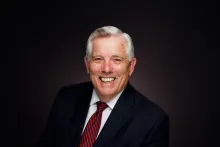Les sévères implications de l'attaque israélienne contre le réacteur syrien.

Beyond Today Magazine
Bonnes Nouvelles : janvier–février 2008
Course Content
Selon The New York Times, « l'attaque aérienne israélienne sur la Syrie [au mois de septembre 2007] était dirigée contre un site qui, de l'avis des analystes des services de renseignements américains et israéliens, était un réacteur nucléaire en construction.
Selon The New York Times, « l'attaque aérienne israélienne sur la Syrie [au mois de septembre 2007] était dirigée contre un site qui, de l'avis des analystes des services de renseignements américains et israéliens, était un réacteur nucléaire en construction. Ce dernier, selon les représentants officiels américains et étrangers ayant accès aux rapports des services de renseignements, était apparemment basé sur le modèle d'un réacteur utilisé par la Corée du Nord désireuse de se constituer un stock de combustible pour armes nucléaires » (14 octobre 2007).
Un raid israélien du même genre, sur l'Irak, avait détruit le réacteur nucléaire Osirak en 1981, freinant considérablement les efforts nucléaires de ce pays. Apparemment, il aurait encore fallu au réacteur syrien plusieurs années avant qu'il ne puisse produire du plutonium servant à la fabrication de bombes nucléaires. Le dernier raid aurait donc servi, si l'on en croit un responsable officiel israélien, à « rétablir la crédibilité de notre puissance dissuasive ».
Certains responsables officiels américains y ont vu un signal non voilé à l'intention de l'Iran. Quelques mois auparavant, une autre source officielle israélienne avait déclaré : « Nous sommes issus d'un holocauste en Europe et nous ferons tout ce qui est en notre pouvoir … pour empêcher qu'une tragédie du même genre ne se répète en Israël. Si les Américains ne font rien, alors nous agirons » (The Sunday Times).
Ce qui est aussi très alarmant, c'est que plusieurs autres nations du Moyen-Orient, évidemment inquiètes de la menace iranienne actuelle, cherchent aussi à se procurer des armes nucléaires. L'année 2006 a été qualifiée d'« année du nucléaire » par Newsweek en termes de prolifération nucléaire accrue dans le monde.
La plupart des pays déclarent vouloir éviter un Harmaguédon nucléaire. Ronald Reagan, quand il était président des Etats-Unis, écrivit dans son journal : « Nous devons faire tout ce qui est en notre pouvoir ... pour éviter une guerre nucléaire » (cité dans Scientific American, en octobre 2007). Néanmoins, quelques pays rebelles et des groupes terroristes suicidaires semblent enclins à provoquer l'impensable (Sources : The Sunday Times (Londres)The New York Times, Newsweek, Scientific American).





